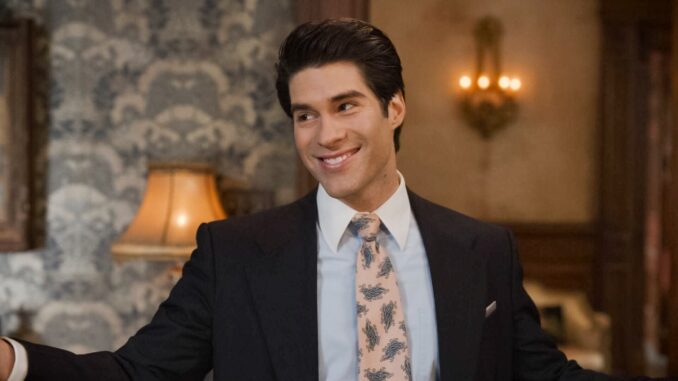
The spectral halls of Woodstone Mansion often echo with the unfinished business of the deceased, but few stories cut as sharply to the core of a character's arrested development as Trevor's discovery about his daughter. Asher Grodman, the actor who imbues the pants-less, Wall Street bro ghost with an unexpected depth, would likely articulate Trevor's "wrongness" not as a simple moral failing, but as a profound illustration of his ingrained self-absorption, a moral blind spot forged in the crucible of privilege and perpetuated by his untimely demise.
To truly understand why Trevor was wrong, one must first appreciate the living man. Trevor, in his prime, was a caricature of early-2000s excess: entitled, charmingly irresponsible, and utterly self-centered. He lived for the next deal, the next party, the next fleeting conquest. His interactions, particularly with women, were transactional, rarely venturing beyond the superficial. It's crucial to acknowledge this foundation because it directly informs the circumstances of his daughter's existence. A fleeting encounter, a casual fling, with no expectation of consequence – this was Trevor's modus operandi.
When the truth emerges – that his brother, Jeremy, secretly raised a daughter conceived by Trevor and kept that momentous fact hidden for decades – Trevor's initial reaction is a tempest of anger, betrayal, and self-pity. This is where, Asher Grodman might patiently explain, Trevor's fundamental wrongness begins to manifest. His outrage is entirely directed outward, an echo chamber of his own ego. He feels robbed of fatherhood, deceived by his brother, cheated by fate. What he demonstrably fails to do, at least initially, is look inward.
Grodman, known for his thoughtful analysis of Trevor's humanity (or lack thereof), would likely point out that Trevor's mistake isn't in feeling pain or shock – those are natural human emotions. His wrongness lies in the source and direction of his anger. He doesn't pause to consider why the mother might have chosen not to involve him. He doesn't contemplate his own living persona, his well-documented history of avoiding commitment, his reputation as a fleeting presence in women's lives. To a woman facing an unexpected pregnancy, a man like living-Trevor would hardly inspire confidence as a reliable, present, or even emotionally capable co-parent. The mother's decision, then, was likely an act of protection and responsibility, a choice made for the well-being of her child.
Furthermore, Trevor's anger at Jeremy, while understandable on the surface for the deception, is also rooted in his self-absorption. He laments his lost opportunity, rather than acknowledging the immense, selfless burden Jeremy undertook. Jessica, Trevor's daughter, had a loving, stable upbringing with a man who chose to be a father, rather than a biological parent who might have been unreliable or even detrimental. Trevor's inability to see this bigger picture, to appreciate that Jessica thrived because he wasn't involved, highlights his core flaw: a lack of empathy beyond his immediate experience. He sees only his own loss, not the potential gain for his daughter.
As Grodman often suggests in interviews, Trevor is a character trapped, not just physically in Woodstone, but emotionally in his mid-twenties. The discovery of his daughter is a brutal, unwelcome mirror held up to his past. His wrongness, in this context, isn't a malicious act but a profound failure of introspection and empathy. He's wrong because he cannot, or will not, connect the dots between his past actions (or inactions) and the present consequences. He's wrong because his entitlement blinds him to the agency and wisdom of others – the mother, who made a difficult choice; Jeremy, who stepped up; and even Jessica, who had a complete life without ever knowing her biological father.
Ultimately, Asher Grodman's explanation of Trevor's "wrongness" would be a nuanced take on a character grappling with the echoes of a life lived for himself. It's a poignant reminder that even in death, the weight of our living choices continues to shape our understanding of the world, and sometimes, the hardest truths are those that reveal our own complicity in our pain. Trevor's journey, even as a ghost, is a slow, agonizing crawl towards self-awareness, and the truth about his daughter is a pivotal, painful step on that path.